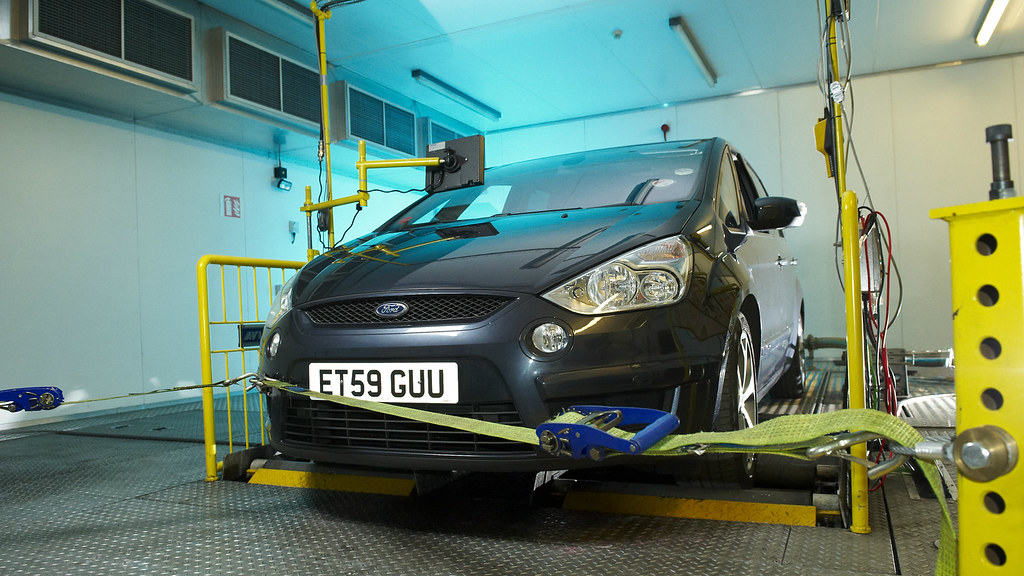The three prestigious grants totaling more than £650,000, have been awarded to the Powertrain & Vehicle Research Centre (PVRC) by the UK's innovation agency, Innovate UK.
Improving engine efficiency and emissions
The first two-year project, Mechanically Decoupled Electric Turbocharger for Optimal IC Engines Efficiency, will be working with Aeristech Ltd, Jaguar Land Rover and Advanced Design Technology Ltd. Dr Sam Akehurst will lead the research at the University and will investigate, through advanced simulation tools, the behaviour of the Aeristech full electric turbocharger technology (FETT) and how its performance can be optimised in interaction with a state-of-the-art Jaguar Land Rover diesel engine. A prototype FETT device will be evaluated experimentally on the University gas stand facility.
The second two year project, Inverted Brayton Cycles for Exhaust Heat Recovery, will be led by Dr Colin Copeland and see the University partner with HiETA Technologies, developers of additive manufactured heat exchangers, and AXES Designs. The project will explore a new way of recovering waste energy from the exhaust gases of a car engine. A significant proportion of the energy in the fuel is normally lost in the form of heat in the exhaust stream. The inverted Brayton cycle aims to address this by capturing and re-using this energy in order to deliver a significant reduction in carbon dioxide.
The IPM e-Cartridge project is a result of the third grant application and is being led for Bath by Deputy Director of the PVRC, Professor Chris Brace. The project, which is in collaboration with Ashwoods Electric Motors, Curtis Instruments and Caterpillar, will investigate the efficiency improvements that can be realised by electrifying aspects of the vehicle hydraulic systems fitted to off-highway machines.
Working with the automotive industry
Commenting on these latest projects, Deputy-Director of the PVRC and Professor of Automotive Propulsion, Professor Chris Brace, said: “These three projects see us working with new partners as well as our existing collaborators and also allow us to work on some new and exciting challenges. We are looking forward to contributing valuable insight into state-of-the-art low-carbon automotive and off-highway systems.”
Dean of the Faculty of Engineering and Design, and Director of the PVRC, Professor Gary Hawley said: “Over the past 15 years we have established an excellent reputation within the automotive industry for our ability to bring deep research expertise in powertrain engineering to address highly complex problems. During this time we secured over £23m of research funding.
“Our industrial clients and sponsors continue to expand and the projects that have been won here bring new collaborations especially with SMEs who we are keen to include within our portfolio of partners.”
The PVRC, based in the Department of Mechanical Engineering, is one of the leading UK university groups in the field and, in September, will open an EPSRC National Centre of Excellence for research on low-carbon vehicles.
The PVRC conducts internationally prize-winning research, focusing on improving the efficiency and emissions of diesel and petrol engines as well as electric and hybrid systems.
Its research pedigree represents nearly five decades of achievement and extensive engagement with the automotive industry. The Centre has made a significant contribution to the continued development of low and ultra-low carbon vehicles, reducing their CO2 signature and thereby enhancing fuel economy. It has played an important role in the vital task of making a cleaner environment.
89 per cent of the research carried out by the University’s Department of Mechanical Engineering was ranked ‘internationally excellent’ (3 *) and ‘world-leading’ (4 *) by the 2014 Research Excellence Framework (REF), an independent assessment of UK university research activity.

